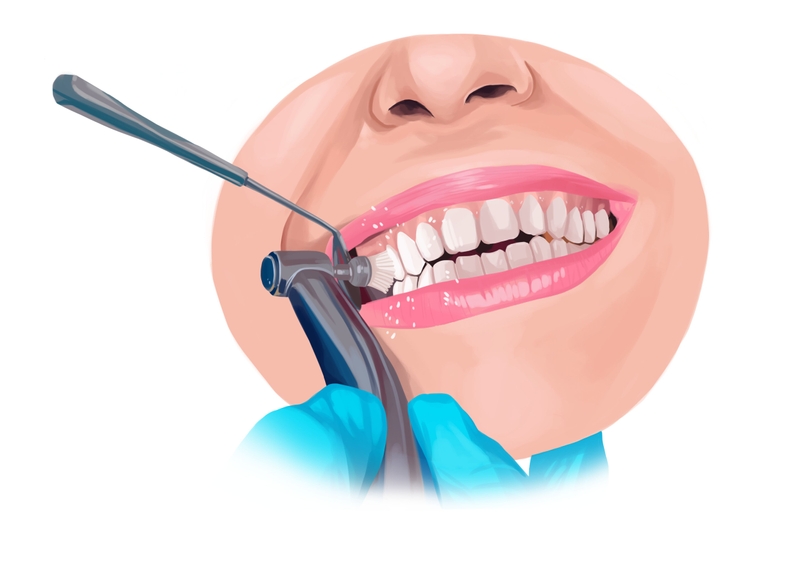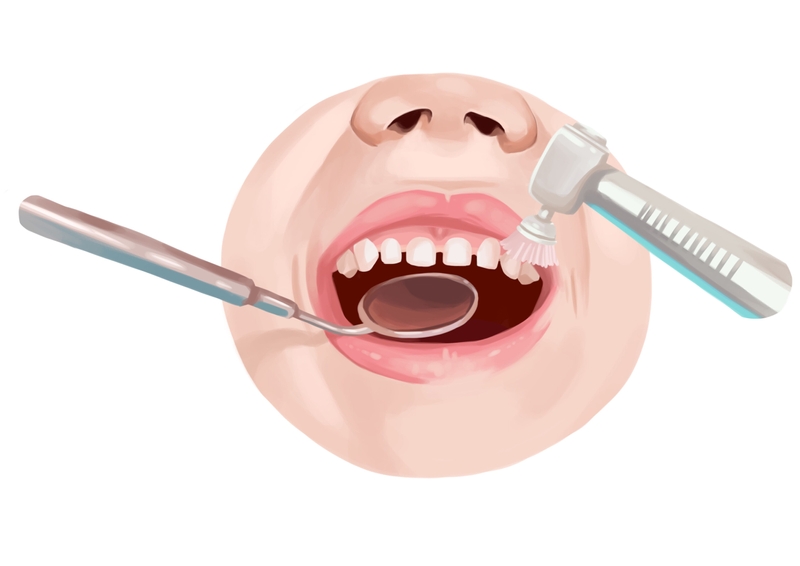Do you struggle with a sensitive gag reflex? Are ordinary activities like brushing your teeth, performing minor medical procedures like taking out contact lenses or cleaning wax from your ears difficult or even unbearable for you? If so, then don’t worry. Many people experience an overly sensitive gag reflex and there are several ways to get rid of it. In this article, we’ll cover what a gag reflex is, why it happens and provide specific strategies for reducing its effects. With the right approach and dedication, anyone can learn how to get rid of gag reflex, minimize their gag response and make everyday tasks simpler and more comfortable.
Contents
Understand The Definition
What Is Gag Reflex?
Before learning how to get rid of gag reflex, gag reflex, also known as the pharyngeal reflex or laryngospasm, is a normal protective response from the body that prevents foreign objects from entering the airway or lungs. It’s triggered when the back of your throat is stimulated by anything touching it, like food particles, saliva, vomit, or even a finger. The resulting reaction causes you to gag or experience tightness in your throat.

What Triggers Your Gag Reflex?
In some cases, the gag reflex is triggered by psychological factors rather than physical ones. It can be caused by negative feelings or memories such as fear, anxiety, stress, or embarrassment. In rare cases, it can also indicate a more serious underlying medical condition like gastroparesis or GERD (Gastroesophageal Reflux Disease).
How To Get Rid Of Gag Reflex?
So how to get rid of gag reflex? You can reduce the effects of your gag reflex with several different strategies. The most important stepis to determine what triggers it and then take steps to minimize or eliminate those triggers. Here are some tips that might help:
- Practice Mindful Breathing Exercises – Taking slow, deep breaths can help relax the body and reduce stress levels, both of which can help reduce gagging.
- Talk To A Professional Counselor – If you believe your gag reflex is psychological in origin, talking to a professional counselor may be beneficial in helping you identify and work through whatever underlying issues are causing it.
- Desensitize Yourself – With practice, you can desensitize yourself to the physical sensations that trigger your gag reflex. Start by gently touching the back of your throat with a cotton swab and gradually increase pressure over time until you become less sensitive to it.
- Use Distraction Techniques – If you’re performing an activity that triggers your gag reflex, try using distraction techniques like counting or focusing on something else in order to reduce its effects.
What Are Relaxation Techniques To Get Rid Of Gag Reflex?
In addition to the desensitization techniques mentioned above, there are also several relaxation strategies you can use to reduce gagging.
- Progressive Muscle Relaxation – This involves tensing and releasing each muscle group in your body, starting with your feet and working your way up, in order to achieve a relaxed state.
- Guided Imagery – Guided imagery is a form of meditation that involves focusing on calming images or sounds in order to relax your body and mind.
- Yoga/Meditation – Both yoga and meditation have been proven to help reduce stress levels which can help reduce gagging if it’s caused by psychological factors such as anxiety or fear.
What Are Tools To Get Rid Of Gag Reflex?
There are several tools you can use for how to get rid of gag reflex
- Anti-Gag Mouthpieces – These mouthpieces come in various shapes and sizes and can be used to hold back the tongue during activities like brushing your teeth or taking out contact lenses, thus reducing gagging.
- Gag Reflex Spray – This spray contains natural oils that act as a topical anesthetic, numbing the area at the back of the throat which reduces gagging.
- Oral Analgesics – Some over-the-counter oral analgesics such as ibuprofen or acetaminophen can be taken prior to performing activities that trigger your gag reflex in order to reduce its effects.
What Are Exercises To Reduce The Intensity Of The Gag Reflex?
- Swallowing Exercise – This exercise involves taking small sips of water and forcing yourself to swallow in order to increase the muscle strength at the back of your throat and reduce gagging.
- Throat Exercise – Many people experience an overly sensitive gag reflex due to weak throat muscles, so it’s important to strengthen them through regular exercises. Try sticking out your tongue for 10 seconds and then releasing it, repeating this 10 times each day.
- Jaw Exercise – Repeat the same exercise as above but with your jaw instead of your tongue. Open and close your mouth repeatedly for 10 seconds at a time, doing this multiple times per day.
- Nasal Spray Exercise – Use a nasal spray to lubricate the inside of your nose and then blow out forcefully through your mouth. Doing this will help reduce gagging by desensitizing the back of your throat.

What Are Medical Advice To Get Rid Of Gag Reflex?
If you find that your gag reflex persists for longer than a few weeks, it’s important to consult with your doctor or another medical professional. They may be able to provide further advice and solutions tailored to your individual needs.
Medication
Your doctor may suggest medication if they determine it is necessary in order to get rid of gag reflex. This could include muscle relaxants or anti-anxiety medications which can help reduce the intensity of the response.
Surgery
In some cases, surgery may be required if the problem is more serious or has been present for an extended period of time. This involves cutting nerves at the back of the throat which will permanently reduce gagging.
What Are The Pros And Cons To Get Rid Of Gag Reflex?
Pros
– Can help reduce stress levels and improve quality of life
– Allows for easier eating, drinking and other activities
– Can prevent the complications associated with a severe gag reflex such as vomiting or choking
Cons
– Desensitization techniques may take some time to get used to
– Surgery can be costly and may not always be necessary
– Some medications can have side effects such as drowsiness, nausea or dizziness
What Are Tips To Get Rid Of Gag Reflex?
- Take Your Time – Don’t rush yourself when it comes to activities that may trigger your gag reflex, take as long as you need in order to complete them without setting off the response.
- Practice Relaxation Techniques – When trying to reduce your gag reflex, practice relaxation techniques such as progressive muscle relaxation or guided imagery prior to performing triggering activities.
- Talk To A Professional – If underlying psychological issues are causing your gag reflex, consider talking to a professional counselor who can help you identify and work through these problems.
- Experiment With Tools – Try different tools such as anti-gag mouthpieces or oral analgesics which can help reduce gagging when needed.

Conclusion: How To Get Rid Of Gag Reflex?
While a gag reflex can be uncomfortable and inconvenient, it is possible to reduce its effects by using desensitization techniques, relaxation strategies and tools such as anti-gag mouthpieces. Additionally, if underlying psychological issues are the root cause of your gag reflex, then talking to a professional counselor may help you work through those problems. Finally, taking your time when performing tasks that may trigger your gag reflex and experimenting with different tools can also make managing this condition easier. With dedication and practice, anyone can learn how to minimize their gag reflex and lead a normal life without having to worry about it affecting them. Thank you for reading “how to get rid of gag reflex?”.
FAQs: Gag Reflex
How did I lose my gag reflex?
In some cases, the absence of a gag reflex can indicate a more serious medical condition, such as cranial nerve damage or brain death. Conversely, a hypersensitive gag reflex (HGR) can be attributed to factors like anxiety, postnasal drip, acid reflux, or oral stimulation (such as during dental procedures). It is important to distinguish between these two conditions and their respective causes.
Is it possible to not have a gag reflex?
While gagging is a typical neuromuscular response, it’s possible that you may never experience a gag reflex. The trigger areas in your mouth might be less sensitive to physical touch or other sensory stimuli. Although it’s conceivable that you might gag in an extreme situation, you may simply not have encountered a circumstance that elicits a gag reflex.
What age does gag reflex stop?
Gagging is a natural reflex that plays a vital role in preventing choking incidents. This reflex can be triggered by various stimuli, such as fingers, food, spoons, or toys coming into contact with the back of the mouth. It’s interesting to note that the gag reflex tends to diminish around the age of 6 months, which coincides with the period when most babies begin to explore solid foods and learn to eat them.
How do you trigger a gag reflex without fingers?
Inducing nausea can also be achieved by gargling warm water. Gargle for at least 10 seconds, allowing the back of your mouth to trigger the gag reflex through the gurgling motion. This simple method can effectively bring about the desired result.
Does making a fist stop gag reflex?
According to a study, a technique that involves folding your left thumb into the palm of your hand, making a fist, and gently squeezing your left thumb has been found to assist certain individuals in managing their gag reflex.
Can coughing trigger gag reflex?
Occasionally, coughing forcefully can stimulate the gag reflex, which is often a positive indication. While older children may have the ability to expel and expectorate their mucus, younger children may struggle with this skill. Thus, vomiting serves as the body’s mechanism to eliminate the mucus that was coughed up.
Can stress cause gag reflex?
While gagging can have multiple causes, one potential factor is an overly sensitive gag reflex triggered by anxiety in certain individuals. This anxiety, varying in intensity from mild to severe, can significantly detract from the overall dental experience, making it unpleasant and stressful.
Can trauma make your gag reflex worse?
An sensitive gag reflex can stem from psychological or physical factors. Psychological elements can exacerbate an already sensitive gag reflex or trigger its development. Previous trauma or past experiences of gagging during dental procedures can further intensify the issue.
How do I stop my gag reflex when brushing my teeth?
To avoid gagging while brushing your teeth, consider the following helpful tips: 1. Opt for an electric toothbrush. 2. Gradually expand the area you brush. 3. Find a suitable time for brushing. 4. Focus on breathing through your nose. 5. Elevate both legs. 6. Try using table salt. 7. Consult with your dentist. 8. Work on desensitizing yourself.
Does salt stop gag reflex?
Indeed, a mere pinch of common table salt, when gently rubbed or positioned on the sides of the tongue, can effectively alleviate the gag reflex. I have personally employed this technique on numerous occasions for my patients, and for many, it has proven to be nothing short of extraordinary.
Are you born with a gag reflex?
The gagging reflex is an innate response that persists throughout our lives, serving as a safeguard for our airway. Its primary function is to prevent foreign objects and food from entering the wrong passage, thereby reducing the likelihood of choking incidents. This reflex is present from birth and plays a crucial role in protecting our well-being.

Trayce served as a grassroots leader and activist in Texas as President of Dallas and Texas Eagle Forum.
Trayce is Mom Caucus Member, Texas Conservative Mamas, Texas Conservative Grassroots Coalition Leader, and Grassroots America Champion of Freedom Honoree.
She currently serves as the Eagle Forum National Issues Chair on Human Trafficking.
Trayce received a Bachelor’s Degree in Marketing from Texas A&M
Currently, she homeschools her youngest child age 13 and graduated her six oldest children, ages 31 to 19.








